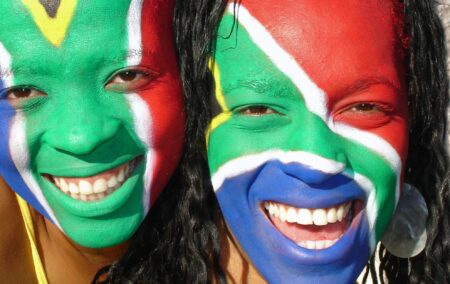On 11 October 2024, African National Congress Youth League (ANCYL) members marched through the streets of Johannesburg, expressing their frustrations and demanding a better future.
Their frustration makes sense; the youth unemployment rate in South Africa is at a shocking 60%, one of the highest unemployment rates in the world. This is a shocking and unbelievable problem for young people to be forced to suffer from for so long.
How can a society allow more than half of its young people to be unable to find work, leaving them without income, prospects, or hope? Young people deserve the chance to succeed, to build a life for themselves, and to thrive in their home country. Economic freedom is the key to making that happen.
Why economic freedom
Economic freedom is a fundamental right that allows people to control their labour and property without unnecessary interference. It enables individuals to pursue opportunities, work hard, and succeed. Unfortunately, South Africa ranks 81st in the 2024 Economic Freedom of the World Report, highlighting the need for significant reform.
By contrast Mauritius, which ranks 17th, has made great strides in improving its economy by embracing economic freedom. Switzerland and Singapore, ranked 1st and 2nd respectively, have unemployment rates of just 2.25% and 3.59%. These countries demonstrate how policies that promote economic freedom lead to lower unemployment and higher standards of living. For South Africa to improve, it must empower young people to make their own choices, innovate, and contribute to the nation’s prosperity.
Economic freedom misinformation
The ANCYL’s call for economic change is important, but it’s essential to understand the difference between true economic freedom and government control. There is misinformation suggesting that economic freedom means increasing state intervention, abolishing property rights, and moving towards socialism. This interpretation is completely incorrect and misleading. True economic freedom gives people real power: the power to make their own decisions, establish their own labour contracts, use and dispose of their property as they see fit, and benefit from their own efforts without interference or coercion. It’s about limiting government power and protecting individual rights.
Empowering individuals not politicians
Prosperity comes from empowering individuals, not from expanding government control or giving more power to politicians. The Fraser Institute’s Economic Freedom of the World report shows that countries with higher levels of economic freedom, such as Mauritius, Switzerland, and Singapore, experience better economic growth, job creation, and poverty reduction. When young people have the freedom to pursue their ambitions without excessive regulation or limited market access, they create opportunities for themselves and others. Economic freedom is not just a theory; it is a proven way to reduce poverty, create jobs, and unlock human potential.
Learning from economically free countries
Countries that focus on economic freedom have consistently given their young people better opportunities. Think about countries like Mauritius, which has completely transformed its economy by reducing regulations, improving its business climate, and focusing on a free market. The country has become a leader in economic freedom on the African continent. Similarly, Switzerland and Singapore have also focused on creating conducive environments for business and economic growth. As a result, Mauritius has seen significant economic growth and lower youth unemployment. In countries with high economic freedom, unemployment is lower, with Mauritius at only 8.1%, Switzerland at 2.25%, and Singapore at 3.59%. South Africa needs similar policies that open up the economy, remove barriers, and empower young people to take control of their own futures.
Less bureaucracy more opportunity
Imagine a South Africa where starting a business doesn’t involve a mountain of paperwork, where jobs reward skills, and where effort leads directly to success. Currently, it takes an average of 40 days to start a business in South Africa, compared to just a few days in economically free countries. Reducing this bureaucratic red tape would make it much easier for young entrepreneurs to bring their ideas to life. That is what real economic freedom looks like: creating an environment where opportunities are available and accessible, and where young people’s dreams aren’t held back by policies that smother the economy. Economic freedom is not about waiting for government handouts; it’s about having the freedom to create, innovate, and build a prosperous life.
Economic freedom in their lifetimes
The young people of South Africa deserve the chance to be part of a growing, dynamic economy. To make this happen, the principles of true economic freedom must be embraced by cutting red tape, creating a business-friendly environment, and believing in the power of individuals. According to the Economic Freedom of the World report, countries that support these principles tend to see greater economic opportunities for all citizens. Together, it is possible to build a future where no young person is left behind, where everyone can choose their own path, and where opportunities are available to everyone.
Young voices matter, and their future matters. Economic freedom is not just an idea; it is a right that will help each person build the future they deserve. Let’s work towards a South Africa where freedom and opportunity are real for everyone, especially the young people who will shape the future.
Eustace Davieis the author of Unchain the child.
[Image: Octagon, https://commons.wikimedia.org/w/index.php?curid=7352633]
The views of the writer are not necessarily the views of the Daily Friend or the IRR.
If you like what you have just read, support the Daily Friend

